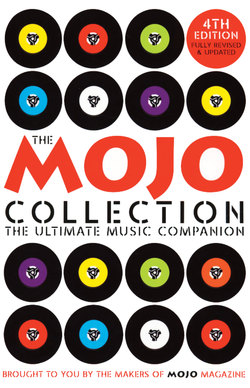Читать книгу The Mojo Collection - Various Mojo Magazine - Страница 106
На сайте Литреса книга снята с продажи.
The Moody Blues Days Of Future Passed Birmingham beat group turn into lush art-rockers.
ОглавлениеRecord label: Deram
Produced: Tony Clarke and Michael Dacre-Barclay
Recorded: Decca Studios, West Hampstead; May 9–June 29, 1967
Released: November 11, 1967 (UK) December 14, 1967 (US)
Chart peaks: 27 (UK) 3 (US)
Personnel: Justin Hayward (g, v); John Lodge, (b, v); Michael Pinder (k, mellotron, v); Ray Thomas (hm, flute, v); Graeme Edge (d, pc); Hugh Mendl (executive producer). With the London Festival Orchestra; Peter Knight (conductor)
Track listing: The Day Begins; Dawn: Dawn Is A Feeling; The Morning: Another Morning; Lunch Break: Peak Hour; The Afternoon: Forever Afternoon (Tuesday?); (Evening) Time To Get Away; Evening: The Sun Set; Twilight Time; The Night: Nights In White Satin
Running time: 41.47
Current CD: Decca 9832150 SACD contains a second disc of alternate versions, outtakes, BBC radio sessions and mono versions of the 1967 singles.
Further listening: The Moody Blues maintained a consistently high level of artistry through 1972’s Seventh Sojourn.
Further reading: www.moodyblues.co.uk
Download: iTunes
When The Moody Blues recorded Days Of Future Passed in October 1967, most of the record-buying public thought that the group’s day had indeed passed. Their original lead singer, Denny Laine, was gone, and despite the addition of new members Justin Hayward and John Lodge, they hadn’t managed a hit in over two years. Their label, Deram (a Decca subsidiary), was losing patience and had assigned staff producer Tony Clark to oversee The Moody Blues’ recordings after Laine’s departure, with a mandate to create hit singles that would recoup the group’s £5,000 advance.
After two singles missed the charts entirely, the label gave the group an album project – of a sort. They were to make a demonstration record of the label’s new ‘Deramic Stereo’ process to show the potential it held for rock and classical music. Specifically, they were to create a rock version of Dvorak’s New World Symphony, augmented by Peter Knight’s orchestrations. It is unclear if the group ever really intended to create the album Deram wanted. They requested one week of ‘lockout time’ at the label’s studios so they could have them for 24 hours a day instead of just the usual morning sessions. Then they convinced Knight to allow them to record the stage act that they had been working on for the past year, a song cycle chronicling a day in the life of an Everyman called Moody Blue. (Yes, they beat a certain song cycle about Mr Pink Floyd by about 12 years.) They also sought to replicate the feel of what Hayward later called ‘the first concept album’ – not Sgt. Pepper or, in fact, the work of a band, but a studio concoction – The Zodiac by Cosmic Sounds.
‘That was the birth of that sound, the tinkling bells and weird effects,’ Hayward explained. ‘It was our oracle. It was a simple concept – 12 songs based on the signs of the zodiac.’
The group debuted the album at a party for Decca’s brass. According to Lodge, some of the label’s staff didn’t know what to make of it. ‘When it finished, initially, stunned silence reigned. The singles head didn’t like it, neither did the managing director, who said, “You can’t dance to it. You can’t play this at a party.”’ Although Tuesday Afternoon was a reasonably-sized US hit, Days Of Future Passed is forever identified with Nights in White Satin. The wistful ballad made Number 19 in the UK in 1967 and became a surprise US smash five years later when it was rediscovered by a Seattle DJ. Hayward, while proud of the song’s lyrical depth, would later confess that its inspiration was surprisingly prosaic: ‘Somebody had actually given me some white satin sheets. They were totally useless, especially if you’ve a decent growth of beard like I have. Dreadful things, satin sheets.’
